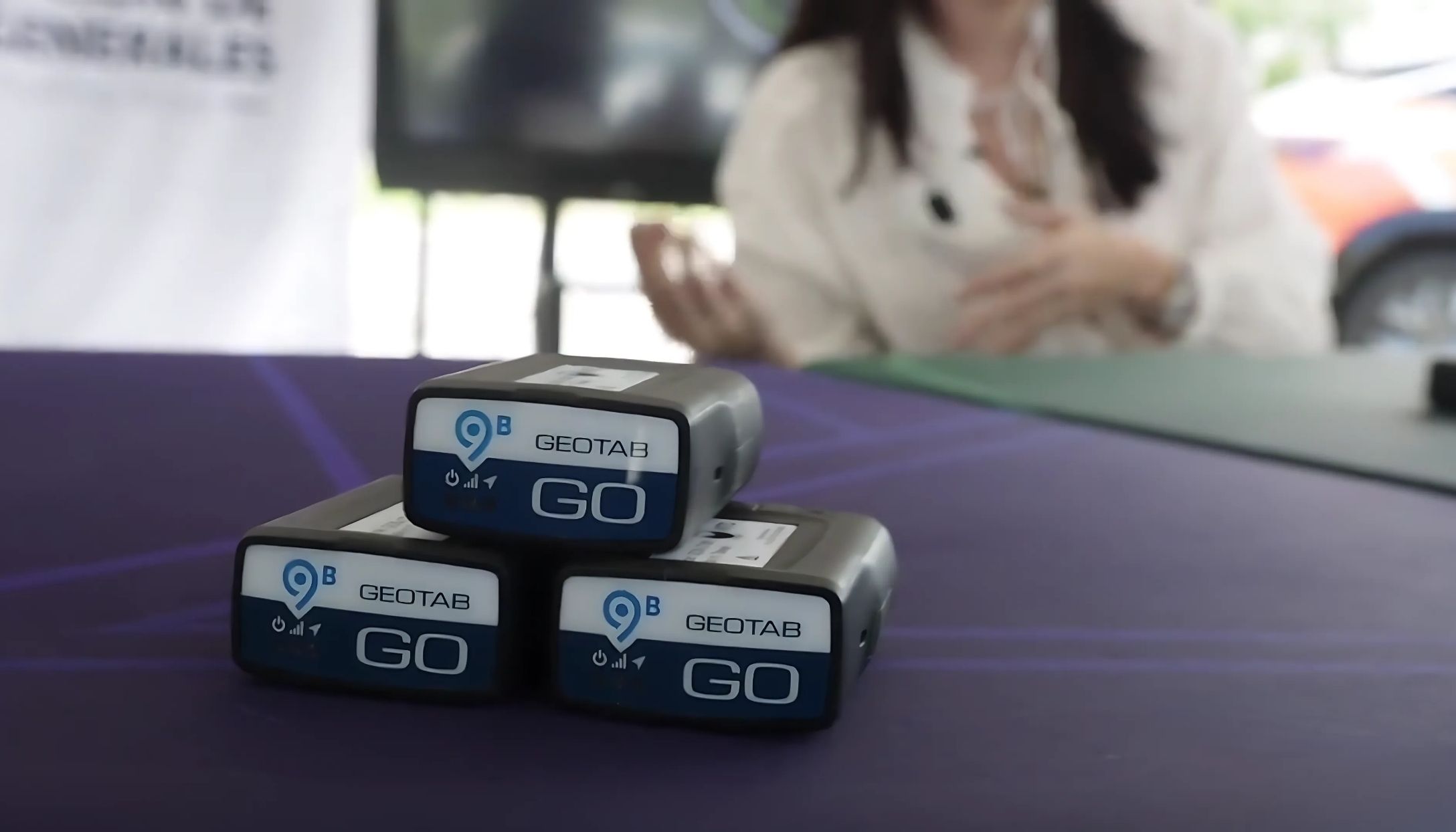.jpg)
3 things to watch as EV adoption increases
Published on July 31, 2023
Geotab examines the technological advancements and solutions that are driving the EV landscape forward
.jpg)
Toronto, Ontario (July 31, 2023) - Electric Vehicles (EVs) continue to gain popularity across North America, with the International Energy Agency (IEA) Global EV Outlook reporting that over 2.3 million electric cars were purchased in the first quarter of 2023, marking a 25% increase from the previous year. As EV adoption grows, it's important to examine the progress in addressing the primary concerns about owning and driving an EV. Let’s look into the technological advancements and solutions that are driving the EV landscape forward.
Adapting to Weather Extremes
Extreme weather conditions, be it hot or cold, can have an impact on the battery range of an EV. A study conducted by Geotab reveals that in extremely cold weather, at -5°F (-15°C), the range could see a decrease of up to 53%. This decrease is in comparison to the vehicle's maximum theoretical range under ideal temperature conditions.
Conversely, when considering hotter temperatures, the study found that at 95°F (35°C), the range could drop by 17%. Across North America and Europe, temperatures have skyrocketed to 45 degrees Celsius -- or 113 degrees Fahrenheit, suggesting an even more significant drop in range for EV owners, which is important to take into consideration when hitting the road with your EV this summer.
Electric vehicles come equipped with onboard battery management systems that monitor the temperature and health of the power source as a standard feature. These systems activate built-in cooling or heating mechanisms to maintain stable temperatures for optimal performance. While the built-in systems take care of the basics, there are additional proactive measures you can take to preserve range.
Prior to your trip, pre-condition your vehicle while it's still plugged in, either warming or cooling it as needed. It's also important to practice conservative driving habits such as gradual acceleration and deceleration to maximize range. Lastly, we recommend route planning and knowing the locations of fast-charging stations along your route. These considerations can ensure a more efficient EV driving experience.
Charging Ahead: Progress and Innovations in North American EV Infrastructure
Another concern for many EV owners is the availability of charging stations during their journeys. In Canada, where the country's vast size poses a unique challenge, over 44% of EV owners share this concern. Nevertheless, progress is being made in expanding the charging infrastructure. There are already 7,383 charging station locations in Canada, with plans to add nearly 150 fast chargers and over 3,500 Level 2 chargers, thanks to a combined $36 million investment by the government.
In the United States, President Biden's $7.5 billion allocation aims to build 500,000 public EV chargers by 2030, which has led to a 40% increase in available charging ports since 2021. More recently, seven major automakers - including General Motors, BMW Group and Mercedes-Benz Group - announced a joint venture that would see them commit over $1 billion to build 30,000 charging ports on major highways and other locations across the United States and Canada. This investment will significantly upgrade the current North American EV infrastructure landscape and further incentivize overall EV adoption.
Technology and data intelligence are also being used to optimize EV charging.Geotab ITS, for example, offers Stop Analytics, a solution that uses aggregated data from over 3.6 million connected commercial vehicles to identify optimal locations for EV charging infrastructure.
How EVs are Going the Distance
In the past, EVs had limited ranges, causing range anxiety for drivers. However, significant advancements have been made, and current EV models regularly boast ranges exceeding 200 miles (320 km). This range is more than sufficient for most daily commutes, covering around 20% of the average American's daily commute distance.
For longer trips, planning is essential to ensure a seamless journey. Route planning tools like Google Maps with its EV charging layer and PlugShare provide maps of EV charging stations worldwide, boosting driver confidence in longer trips.
Real-life examples, like the Ludewig family's 3,700-kilometer journey from Germany to Brittany and Normandy and the 4x4electric team's expedition from Germany to South Africa entirely in an electric vehicle, demonstrate that proper planning and advancements in battery technology can help overcome range concerns.
Conclusion
Despite the challenges, the EV landscape continuously evolves, thanks to remarkable progress in infrastructure development, battery technology, and vehicle efficiency. As technology advances, we can look forward to a greener future with EVs dominating the roadways.
Looking for more information about EVs? Check out our Fleet Electrification Knowledge Center for additional resources.
Media Contact
Nicole Riddle
Senior Specialist, Strategic Communications
pr@geotab.com
About Geotab
Geotab is a global leader in connected vehicle and asset solutions, empowering fleet efficiency and management. We leverage advanced data analytics and AI to transform fleet performance, safety, and sustainability, reducing cost and driving efficiency. Backed by top data scientists and engineers, we serve over 55,000 global customers, processing 80 billion data points daily from more than 4.7 million vehicle subscriptions. Geotab is trusted by Fortune 500 organizations, mid-sized fleets, and the largest public sector fleets in the world, including the US Federal Government. Committed to data security and privacy, we hold FIPS 140-3 and FedRAMP authorizations. Our open platform, ecosystem of outstanding partners, and Marketplace deliver hundreds of fleet-ready third-party solutions. This year, we're celebrating 25 years of innovation. Learn more at www.geotab.com and follow us on LinkedIn or visit Geotab News and Views.
Related posts

Geotab #1 in Video Telematics
November 30, 2023


The Last Mile: Navigating the Fast Lane of Delivery Logistics
November 22, 2023
Recent News

Puerto Rico Government Selects Geotab for Telematics Solutions
April 17, 2025

Geotab Wins a Google Cloud Partner of the Year Award
April 8, 2025

